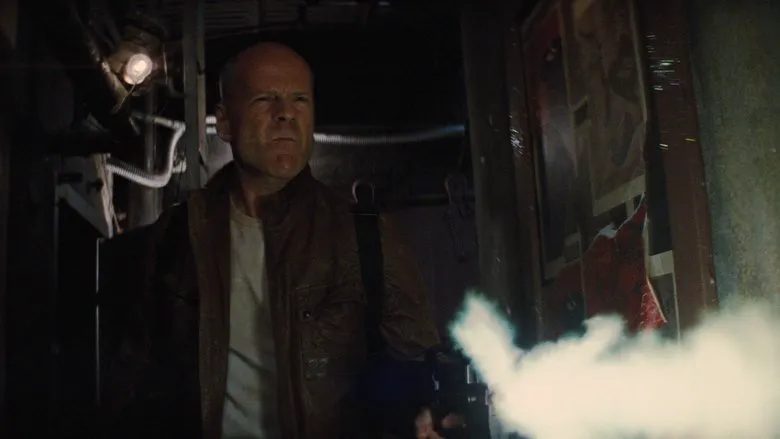The Resurgence of Chinese Cinema and the Controversy Surrounding “Return to Dust”
The mainland Chinese box office is showing signs of recovery.
While Moon Man has emerged as the box office champion of the summer season, grossing over 1.6 billion yuan in less than a week, it’s the art-house film Return to Dust that’s capturing attention for its remarkable audience occupancy rate.

A Film That Defies Expectations
Return to Dust, a rural drama, has defied market expectations. Despite limited screenings, it has garnered critical acclaim, achieving a 豆瓣(Douban) score of 8.4, the highest of any domestic film this year. Its audience occupancy rate has surpassed many of its more mainstream counterparts.

Controversy Arises
However, as word-of-mouth spreads, so does controversy. The film’s selection for the main competition at the Berlin International Film Festival has led some to accuse it of deliberately portraying China in a negative light to win international awards.
“It ticks all the boxes for winning awards: suffering, ugliness, and poverty,” some critics claim.

This sentiment is not new. Many domestically produced films that offer strong social commentary have faced similar accusations, especially when they gain recognition at international film festivals.
But is there any truth to this claim?

Examining the Link Between Social Commentary and International Recognition
Is it true that Chinese films exposing the dark side of society are more likely to win international awards?
Looking back at the history of Chinese cinema, there are indeed examples that seem to support this view.
Using the “winning formula” mentioned by netizens:
The Element of “Suffering”
No one embodies suffering more than Fugui, the protagonist of the film To Live.
Throughout his life, he is relentlessly crushed by the wheels of history, with “living” becoming his only hope.
Born into wealth, he loses his fortune through gambling, squanders his wealth, and causes his father’s death.
He then descends into a vortex of cruel fate, losing his mother, son, and daughter in succession.
In the end, he is left alone.

As is well known, this film was banned in China.
However, it achieved great success abroad.
It won the Jury Prize at Cannes, just one step away from the top prize.
The actor Ge You also became the first Chinese actor to win the Best Actor award at Cannes for his precise portrayal of Fugui.

The Element of “Poverty”
The film Still Life focuses on a coal miner.
He travels from Shanxi to Chongqing to find his wife and daughter, carrying only a few crumpled bills in his pocket and staying in a worker’s hotel that costs 1.2 yuan a night.
To make a living, he joins the local demolition team, working shirtless and sweating profusely.
This film also found greater acclaim abroad than at home.
It won the Golden Lion, the highest honor at the Venice Film Festival.

In Beijing Bicycle, a rural boy named Gui, who works in the city as a courier, charges 10 yuan per delivery.
He accidentally takes a bath in a bath center, but cannot afford to pay.

Similarly, in Suzhou River, Hongqin, a rural girl played by Zhou Xun, works as a nanny for a wealthy family in the city.
Because she cannot afford to buy nice clothes, she often steals the owner’s clothes and high heels when no one is looking.

This film was nominated for the Berlin Film Festival and won the Jury Grand Prix Silver Bear.
However, it was banned from public screening in mainland China.
The director Wang Xiaoshuai revealed that it was because “too many hutongs were filmed, and the modern side of Beijing was not filmed,” which the authorities believed was not conducive to the Olympic bid.

The Element of “Ugliness”
Finally, in the film The Story of Qiu Ju, Gong Li “uglifies” herself to portray a village woman who is determined to seek justice for her husband.
She wears a floral red cotton-padded jacket, walks with her feet splayed outwards, and wears a green headscarf over her pregnant belly.
Under the headscarf is a dark, rough face with chapped lips, breathing heavily.
She is completely integrated into the environment of the remote countryside.

In the end, the film won the Golden Lion at the Venice Film Festival.
Gong Li also became the first mainland Chinese actress to win the Venice Film Festival Best Actress award for her role as Qiu Ju.

The above examples seem to indicate that the netizens’ assertion is not without basis.
However, this does not mean that the assertion is correct.
Because, from another perspective, there are also many counterexamples.
Many films do not focus on exposing suffering, but still win major international awards.
For example, wuxia action films.
In Crouching Tiger, Hidden Dragon, the soaring walls, bamboo forest fights, and the spirit of chivalry are fully displayed.
It became the first Chinese-language film to win the Academy Award for Best Foreign Language Film.

Also, family films.
Peacock, which won the Jury Grand Prix at Berlin, focuses on an ordinary family of five, telling the story of individuals in the changing times who are filled with loneliness after their dreams are shattered.

So Long, My Son, which won Yongmei and Wang Jingchun the Best Actress and Best Actor awards at Berlin respectively, tells the story of the joys and sorrows of two families in the torrent of the times over thirty years.
And, love films.
Zhang Yimou’s The Road Home, which won the Silver Bear, tells a simple and moving love story.
It is not bitter, old, or ugly.
On the contrary, with bright and beautiful light and shadow, it breaks free from the shackles of feudal marriage and shines into the new atmosphere of free love.

In addition, Beijing Bicycle is actually a youth film.
It also writes about the growing pains of urban teenagers.
Revolving around the youth and love stories of two 17-year-old boys, it is still considered by many to be the ceiling of domestic youth films.

The True Motivations Behind Award-Winning Films
It is clear that there is no direct causal relationship between “smearing China” and winning international awards.
As Ann Hui said, making a film with the intention of winning an award usually does not work.
On the one hand, the creative motivations of these award-winning works are not to win awards abroad.
Li Ruijun, the director of Return to Dust, is a native of Gansu.
His life experience and deep feelings for his hometown have made him passionate about and good at telling simple rural stories.

To Live was discovered by chance.
Zhang Yimou originally planned to adapt Yu Hua’s other novel, River’s Error.
To gain a deeper understanding of the text, Zhang Yimou said that he wanted to see all of Yu Hua’s works.
He accidentally got a copy of To Live and was completely attracted by the story, so he decided to film To Live.

The birth of Still Life was also accidental.
While filming the documentary Dong in Chongqing, Jia Zhangke happened to witness the scene of demolition workers in Fengjie County working hard.
He was shocked by the silent and sweating backs of these ordinary people and realized that there were many stories worth exploring and filming in the Three Gorges.
This led to the subsequent filming plan.

In addition to personal factors, historical and era factors also dominate the creative motivation.
The vicissitudes of society have spawned many rural literary creations.
Works such as Red Sorghum and Raise the Red Lantern also stem from the director’s and author’s shared feelings about the surrounding environment.

Jia Zhangke’s films also echo the changes in towns and villages during the process of urban-rural transformation.
With the unique symbols of the times such as demolition houses, motorcycles, pagers, and popular songs, he has opened up a film space for grassroots narratives.
It records the survival struggles of small people at the bottom, such as Xiaowu, Cui Mingliang, Han Sanming, and Shen Tao.

On the other hand, the selection of international awards has its own different standards and processes.
The Oscar awards largely rely on the operation of public relations companies.
A key factor for The Grandmaster to be nominated for the Oscars was finding Harvey Weinstein, a distributor who was still famous in Hollywood at the time.

The decision-making power of the Cannes awards is more in the hands of the judges.
The lineup changes every year, and the national composition is diversified.
For example, in 2009, half of them were Eastern faces:
Chinese actress Shu Qi, Korean director Lee Cangdong, Turkish director Ceylan, and Indian actress Sharmila Tagore.
Chinese filmmakers such as Zhang Ziyi, Wang Jiawei, Li An, and Jiang Wen have all served as Cannes judges.
Each judge has his or her own best film in mind.
Iranian master Abbas strongly supported Hou Xiaoxian’s The Puppetmaster.

In the end, the film won the Jury Prize.
The Palme d’Or was shared by Farewell My Concubine and The Piano Lesson.
Who the award goes to largely depends on the individual judges’ efforts to argue their case.
How many judges, how many “standards”.
How can it be summarized in one word “Western aesthetics”?

Addressing Historical Stereotypes
Of course, when refuting the “smearing China” argument, we cannot ignore a fact.
In the early days, mainstream Western film and television were indeed keen to present the image of a poor and downcast East.
This stems from Western stereotypes and lagging perceptions of China, and is also inseparable from China’s early weakness.
The image of Chinese laundry workers in the comedy short film The Chinese Laundry Scene is one of the earliest Chinese screen images in American film history.
The Hollywood films The Good Earth and Dragon Seed, adapted from Pearl S. Buck’s novels in the 1930s and 1940s, presented Chinese farmers and laid the foundation for the tone of Chinese images.


But with the development of history, China and Chinese films have gradually occupied more international attention, and prejudices have gradually been corrected.
In science fiction films such as Looper and Her, filming was done directly in Shanghai.
The modern side of China is increasingly seen by more people.

The theory of only focusing on the subject matter is no longer valid.
The reputation of Return to Dust in and outside China is obvious to all.
Still Life and The Story of Qiu Ju and other films that have blossomed abroad are actually highly praised in China, with Douban scores of 8+, and To Live is as high as 9.3 points.
Blind Shaft and Hibiscus Town, which also expose the darkness of the bottom, have also won domestic awards such as the Hong Kong Film Awards and the Hundred Flowers Awards.

In the final analysis, what enables a film to go abroad and gain international recognition is the quality of the work itself and the universal core of value.
In To Live, the indomitable national character and optimistic attitude towards life are thought-provoking.
In Still Life, we see people who have been forgotten by the times, still adhering to the importance of emotion and the pursuit of good intentions.
In The Story of Qiu Ju, when we see the simple folk customs, we also resonate with the eternal contradiction between reason and law.

There are also many famous Western directors who are keen to shoot stories about the bottom and criticize the dark side of society.
For example, Ken Loach has always focused on the plight of the working class.
They are forced to be unemployed, lose their dignity, and even struggle on the breadline.
The sharp portrayal of “people trapped in the system” has long crossed the limits of geography and won universal resonance.

Sean Baker, the protagonists in the lens are always marginalized groups.
Prostitutes, drug addicts, homeless people, single mothers, out-of-school children…
He has won many international awards and is also deeply loved by domestic audiences.
It can be seen that the compassion of “mourning the hardships of people’s lives” is not limited by geography.

What’s more, China, as the birthplace of agricultural civilization, rural areas are an unavoidable aspect.
Compared with floating upper-class stories, creations rooted in barren land are easier to dig out deeper social realities and national character.
Exposing or recording the life cries in the shadows is the mission of the creator.
Just like Mo Yan, who was also accused of “flattering the West”, once said:
**"Literary works are not tools for singing praises. Literature and art should expose darkness